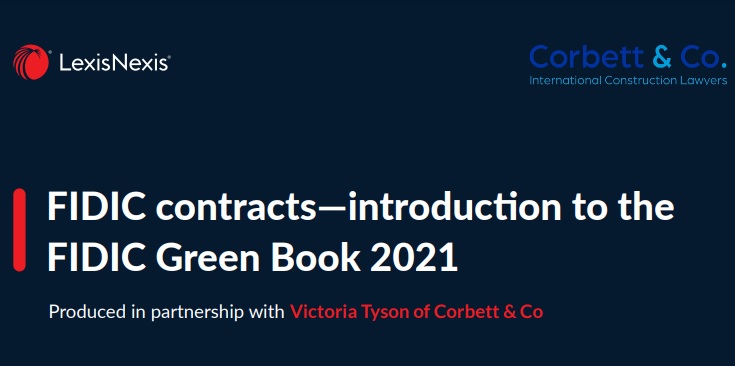International Arbitration and Third Party Funding: Time to Rethink Reward and Risk?
Written by Joanne Clarke |
March 18, 2022
Introduction
The English Commercial Court has now confirmed in two separate decisions that an arbitral tribunal may award a winning claimant its third party funding costs. How significant are these decisions and it is time to rethink the potential reward and risk of international arbitration?
The First Decision – Essar v. Norscot (2016)[1]
This case concerned an ICC arbitration with a seat in England. The tribunal awarded Norscot its funding costs, i.e., the sum that Norscot owed to a third party funder for advancing sums for the purposes of the arbitration.
The tribunal found that provisions in the English Arbitration Act 1996 (including section 59(1)(c) which defines the ‘costs of the arbitration’ to include ‘the legal or other costs of the parties’) and the ICC rules of arbitration (article 31(1) of the applicable rules which defined the ‘costs of the arbitration’ to include the ‘reasonable legal and other costs incurred by the parties for the arbitration’) gave it a wide discretion as to what costs it could award to the winning party. In light of Essar’s conduct, of which the tribunal was critical, these included Norscot’s funding costs as reasonable ‘other costs’.
Essar applied to the English court to set aside the award under section 68 of the English Arbitration Act 1996 on the grounds that the arbitral tribunal exceeded its powers by awarding the funding costs and this constituted a serious irregularity. The English Commercial Court dismissed the application. It found that the tribunal had the power to award funding costs because as a matter of language, context and logic they fell within the definition of ‘other costs’ and the decision whether or not to award such costs then fell within the tribunal’s general costs discretion.
The decision in Essar raised a number of questions regarding the recovery of funding costs in arbitration including: how significant is a party’s conduct to this recovery (for example, does the conduct have to lead to the other party’s impecuniosity?), whether a tribunal may exercise its discretion if the funding was not strictly necessary to bring the claim (for example, where the claimant has sufficient funds to pay its arbitration costs but chooses to obtain third party funding for commercial reasons, such as to ease cash flow or hedge risk) and at what stage the funding should be disclosed.
The ICCA-Queen Mary Report on Third Party Funding in International Arbitration (2018)[2]
This Report was published after Essar v. Norscot and considers many questions relating to third party funding in international arbitration in light of its rapid evolution. The Report notes that there were (in 2018) very few reported cases dealing with the award of funding costs[3] and that, under the majority of arbitration rules, a party may recover costs which it has ‘reasonably’ incurred in the arbitration, with three caveats.[4] First, the tribunal may not in fact have the power under the applicable laws (or rules) to award funding costs. Second, the amount of funding costs must generally be reasonable and this will depend on the circumstances. Third, if a tribunal decides to award funding costs, this should ordinarily be possible only if details of the funding costs are disclosed from the outset of the arbitration or at an early stage because ‘ordering an unsuccessful respondent to pay funding costs constitutes a significant shift in the risk associated with the outcome of the arbitration’.[5]
Disclosure of Funding Arrangements: Revisions to Arbitral Rules
Various arbitral institutions have amended their rules to require parties to disclose the existence of a third party funding arrangement. For example, Article 11(7) of the 2021 ICC Rules requires parties, in the context of assisting arbitrators with their duties regarding conflicts of interests, to ‘promptly inform the Secretariat, the arbitral tribunal and the other parties, of the existence and identity of any non-party which has entered into an arrangement for the funding of claims or defences and under which it has an economic interest in the outcome of the arbitration’.[6]
The Second Decision – Tenke v. Katanga (2021)[7]
In this case, Katanga commenced an arbitration against Tenke in respect of claims arising from contracts[8] for services at a mine in the Democratic Republic of the Congo. The contracts and the arbitration clauses were subject to English law and the arbitration proceeded under ICC arbitration rules with a seat in London. Katanga obtained funding for the arbitration from a related company (Logos Agvet Limited which was controlled by a shareholder of Katanga) on terms which included payment of a success fee. Katanga disclosed the existence of this funding only in the cost submissions stage of the arbitration and sought to recover the success fee as part of its costs in the arbitration.
The tribunal accepted that the funding costs were ‘other costs’ by virtue of section 59(1) of the English Arbitration Act. The tribunal considered whether the funding costs were reasonable because of the inter-company nature of the funding and also as to the amount.[9] It considered that the funding choice was not inherently unreasonable in the circumstances and awarded Katanga its funding costs.
Tenke challenged the award under section 68 of the Arbitration Act 1996 on the grounds of serious irregularity.[10] This included a challenge to the award of funding costs as being an excess of power (section 68(2)(a)).
Tenke made a number of arguments in respect of its challenge to the award of funding costs.[11] These included that, when the Arbitration Act 1996 was passed, it could never have been intended that ‘costs of the arbitration’ or the ‘legal or other costs of the parties’ (as these phrases appear in the Act) would encompass a fee paid to a funder or costs relating to a loan taken out to pay for legal fees; a fee payable to a funder is not recoverable in English court litigation and there is no reason to think that Parliament intended a different rule to apply to arbitration; the decision in Essar was wrong and met with surprise and concern in the field of international arbitration; but the present case was much worse because the funding was not even provided by a regulated third party funder but by a company related to Katanga; there was no finding that Katanga needed the funding to pursue the arbitration; and, if the award was permitted to stand, it would encourage claimants to take out shareholder loans so that shareholders could recover ‘fees’ safe in the knowledge that (unlike third party funders in court litigation) they were beyond the reach of the arbitral tribunal and courts if the claimant did not win the arbitration.
The English Commercial Court was not persuaded. It followed the reasoning in Essar and rejected Tenke’s challenge.[12]
A Rethink of Reward and Risk?
Increasingly claimants are seeking third party funding either so that they have the money to bring the claim in the first place or for other commercial reasons such as hedging risk. Where a specialised funder is concerned, the basic arrangement usually involves the funder providing funding to the claimant for a return, which may be a fixed percentage share of around 30-50% of monies recovered, or a multiple of around two to four of the funding to be provided, or a combination of both. The cost of the third party funding to the claimant can therefore be significant.
In the Tenke and Essar decisions summarised above, the English Commercial Court upheld the award of funding costs by two arbitral tribunals with very different facts. Accordingly, it seems there is an argument, at least in English law and provided the applicable arbitration rules permit it, that a winning claimant may recover from a losing respondent its funding costs as an ‘other cost’ if it can persuade the tribunal that (1) it was reasonable for that party to have recourse to the particular type of funding in the circumstances of the case, and (2) the amount of the funding costs was reasonable.
For the losing respondent, this may constitute a significant and highly unwelcome shift in the risk associated with the outcome of the arbitration in particular if the funding arrangement is disclosed by the claimant only towards the end of the arbitration.
Conclusion
Third party funding is increasingly a feature of international arbitration. As the cases above show, a winning claimant may be awarded its funding costs and a losing respondent may be liable for those funding costs, even if the funding arrangement is not disclosed until late in the arbitration, subject only to a test of reasonableness. The funding costs may be significant. Parties should therefore consider and monitor the possibility of third party funding during the course of any international arbitration.
[1] Essar Oilfields Services Limited v. Norscot Rig Management PVT Limited [2016] EWHC 2361 (Comm). See also the article ‘A Surprise Award of Third Party Funding Costs’ published in the Corbett & Co. newsletter of February 2017.
[2] International Council for Commercial Arbitration and Queen Mary University of London, ‘Report of the ICCA-Queen Mary Task Force on Third-Party Funding in International Arbitration’, April 2018. This 272-page Report contains a wealth of discussion and information on the subject of third party funding.
[3] Report, p151. In addition to Essar v. Norscot, the Report mentions ICC Case No. 7006, ICSID Case No. ARB/08/2, ICSID Case No. ARB/05/15, and SCC Arbitration No. 24/2007.
[4] Report, p158.
[5] Report, p158 to p159.
[6] See also for example the SIAC Investment Arbitration Rules (2017) which at article 24(l) give the tribunal the power in certain circumstances to ‘order the disclosure of the existence of a Party’s third-party funding arrangement and/or the identity of the third-party funder and, where appropriate, details of the third-party funder’s interest in the outcome of the proceedings, and/or whether or not the third-party funder has committed to undertake adverse costs liability.’ See also the HKIAC Administered Arbitration Rules (2018) which require the Notice of Arbitration and Answer and any Request for Joinder and Answer to include ‘the existence of any funding agreement and the identity of any third party funder …’ (articles 4.3, 5.1, 27.6 and 27.7) and sets out further provisions regarding the notice that is required if a funding agreement is made (article 44).
[7] Tenke Fungurume Mining SA v. Katanga Contracting Services S.A.S. [2021] EWHC 3301 (Comm).
[8] Katanga commenced two arbitrations but these were later consolidated.
[9] [2021] EWHC 3301 at para 68.
[10] Tenke advanced four grounds for its challenge; failure to adjourn the arbitration to allow a visit to the construction site; failure to adjourn the arbitration notwithstanding the illness of its leading counsel, the costs award; and the award of compound interest.
[11] [2021] EWHC 3301 at para 76.
[12] [2021] EWHC 3301 at para 92. The court noted that in light of Willers v Joyce, the court should ‘generally follow a decision of a court of co-ordinate jurisdiction unless there is a powerful reason for not doing so’. It agreed with the court in Essar that, at its highest, the award of funding costs would be an erroneous exercise of an available power and so not susceptible to challenge under section 68. If there had been an error of law, there was a remedy under section 69, but in the present case that remedy had been excluded by agreement. [2021] EWHC 3301 at para 95.


